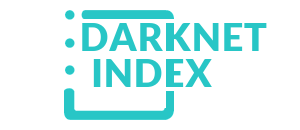The darknet, also known as the dark web, is a concealed section of the internet that's inaccessible via standard search engines. You can only access it using special software, settings, or authorization. This area comprises websites and content that are purposely kept hidden from public view.
Accessing darknet requires using Tor Browser, a special web browser that routes your internet traffic through a global network of relays managed by volunteers. This way, it becomes very difficult to trace which websites you're visiting, and these sites won't know where you are located.
When visiting the dark web, use a secure browser like Tor, do not reveal any of your personal information, and don't open suspicious files or links to stay safe.
The Darknet is often utilized for secure communication, discreet information or file sharing, anonymous research without identity exposure, and occasionally for engaging in illicit activities. It is also recognized for hosting underground black markets(darknet markets), whistleblowing platforms, and discussion boards that champion freedom of speech.
While accessing Darknet Markets themselves is typically not against the law in most places, engaging with illicit goods within them is generally considered a crime. On the other hand, some people might visit Darknet Markets for lawful purposes such as research, journalistic work, or simply to explore online communities. It's essential to know the local laws regarding online activities, and be cautious when using these platforms to avoid any potential issues.
Michigan Man Receives Ten-Year Sentence for Leading Global Computer Fraud and Online Scams
Schemes were carried out by co-conspirators in India, Europe, and the United States.
A man from Michigan has been sentenced for defrauding internet users with scam virus alerts and distributing controlled substances online.
Doyal Kalita, 37, from Redford, Mich., was sentenced to 10 years in prison with three years of supervised release. He was also ordered to pay $272,293 in restitution and forfeit $2,542,784. Kalita pleaded guilty in February 2024 to wire fraud conspiracy, conspiracy to import controlled substances, and money laundering conspiracy.
Kalita and his partners set up a scheme in 2015 to deceive internet users with fake pop-up screens, directing them to call for technical support and then selling them unnecessary products and services. They also ran an online drug distribution scheme, shipping prescription drugs from India and Europe to the United States.
Some of Kalita's co-conspirators remain fugitives. Manish Kumar and Robert Polanco, who were involved in the schemes, have been sentenced to prison as well. The case was prosecuted by Assistant U.S. Attorney Kriss Basil.
The charges against the remaining defendants are allegations until proven guilty in court.
